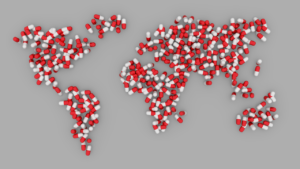
Photo credits: pixabay.com
Kostadin Kostadinov, Georgi Iskrov, Nina Musurlieva and Rumen Stefanov, as part of Medical University – Plovdiv and Institute for Rare Diseases have conducted a comprehensive study on rare cancer policies across Europe. Their research examines healthcare professionals’ knowledge, attitudes, and perceptions regarding rare cancers, with an emphasis on evaluating the effectiveness of existing and proposed policies across Europe. This significant work has been published in the prestigious international journal Cancers (Impact Factor: 5.2).
Rare cancers, defined as those with an annual incidence of fewer than six cases per 100,000 individuals, are associated with significant health inequalities. This study aimed to assess the knowledge, attitudes, and perceptions of healthcare providers with expertise in rare cancers regarding the effectiveness of enacted or planned rare cancer policies across Europe.
Between 25 March 2023 and 5 March 2024, an online survey targeting 738 healthcare providers affiliated with the European Reference Networks and the Organization of European Cancer Institutes was conducted, yielding 92 complete responses from 28 European countries (response rate: 12.5%). While a significant portion of respondents were unaware of their country’s legal definitions for rare cancers, 67.4% acknowledged that national cancer plans prioritized rare cancers. These plans received the highest ratings for their evidence-based interventions and monitoring efforts. The integration of rare cancer policies into broader oncology frameworks was the preferred policy model. National cancer registries were highly rated for confidentiality and validity but scored the lowest for cost-effectiveness. Government funding was deemed crucial for cancer screening programs. The disease burden and unmet health needs primarily influenced reimbursement decisions in the field of rare cancers. Respondents rated palliative care as more effective in adults with rare cancers compared to in children, particularly regarding symptom management.
The article identifies significant variability in rare cancer policy evaluations across Europe. It emphasizes the need for a standardized EU-level definition for rare cancers and calls for a shift in reimbursement and policy frameworks, highlighting the importance of policy integration and enhanced collaboration. However, given the limitations of the study, such as a small sample size and potential unstudied confounding factors, its findings should be interpreted with caution. A systematic policy review and multistakeholder assessment in the future could complement these results. Read the full article here.
